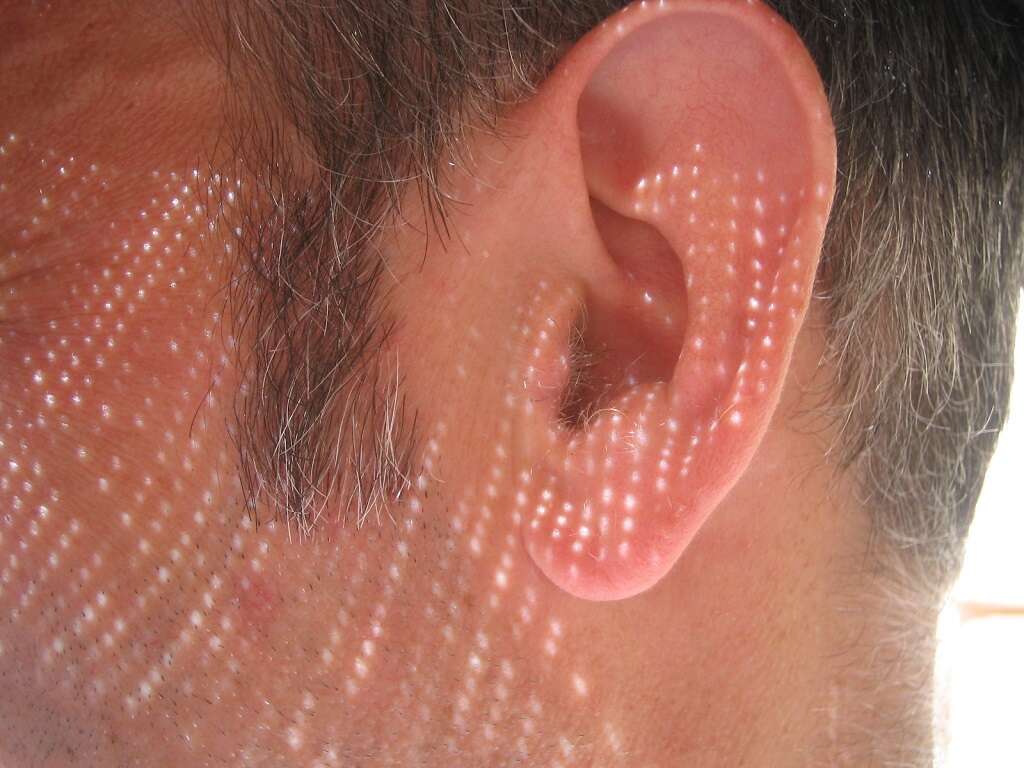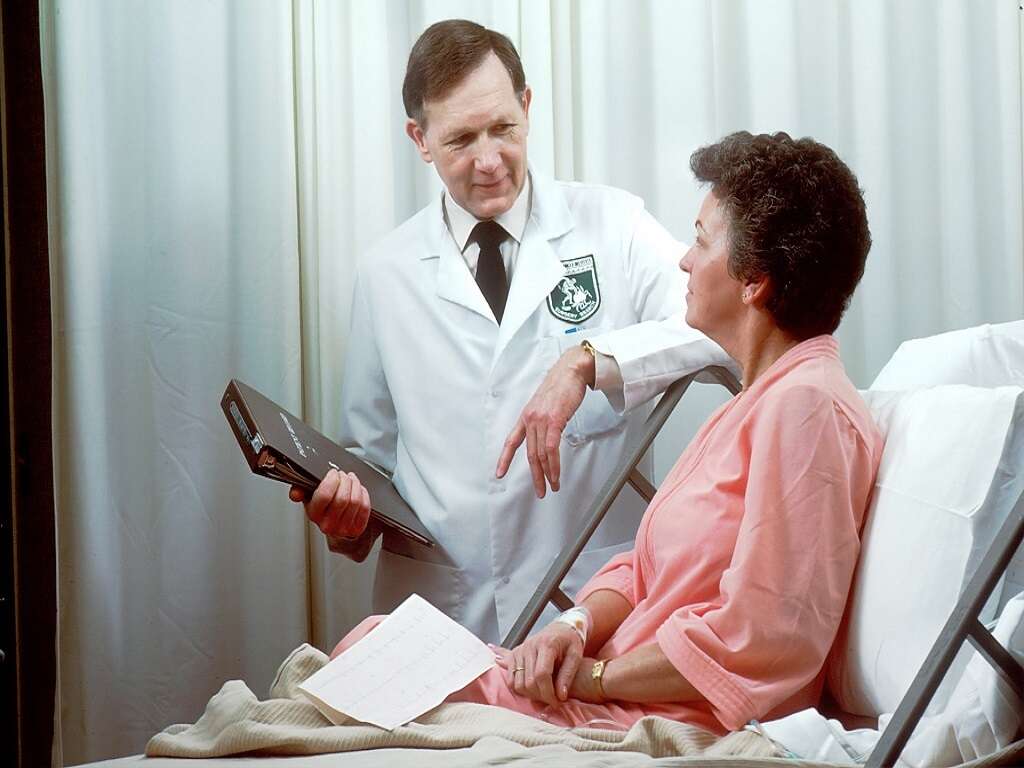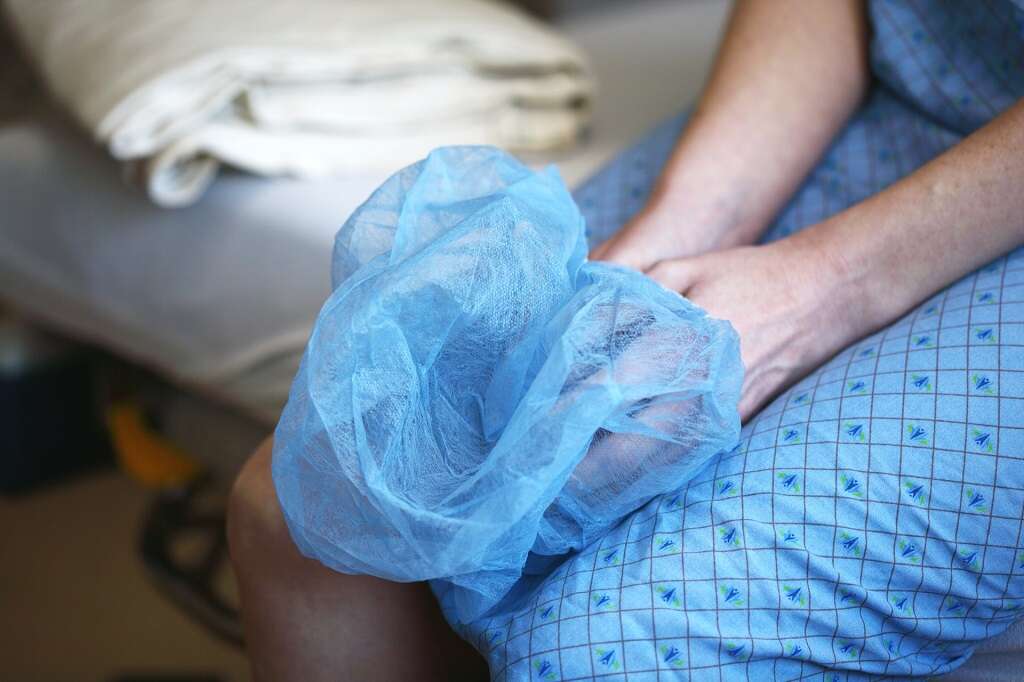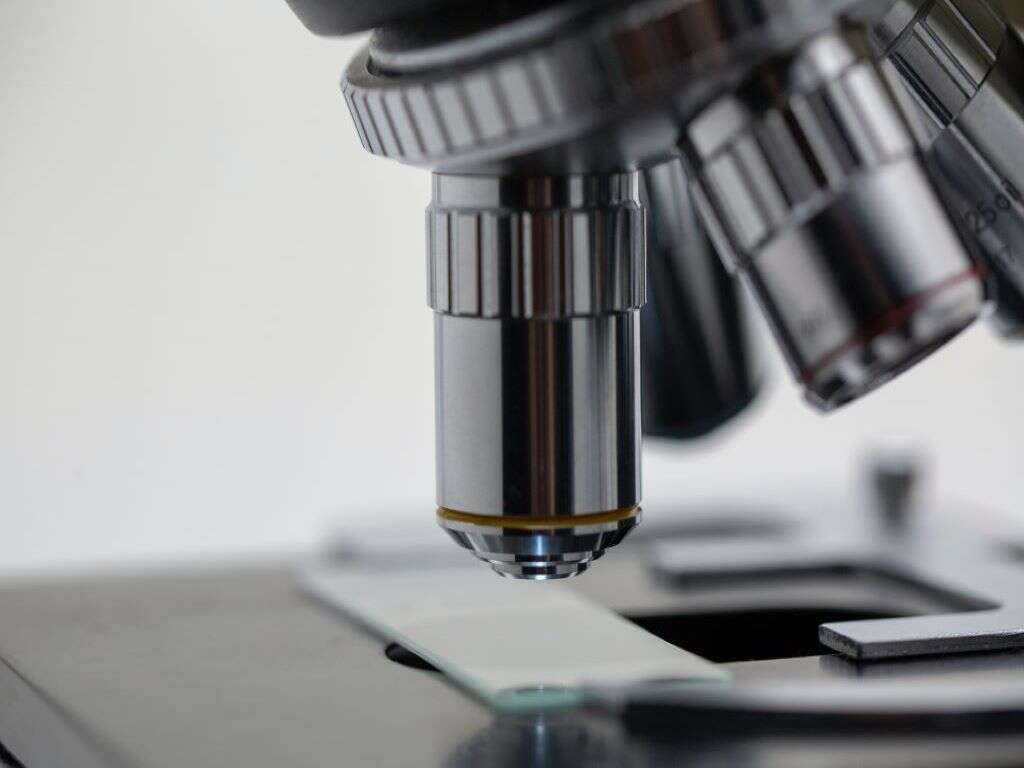Polyp Types, Treatments & More
 Article Sources
Article Sources
- 1. 'Colon Polyps - Symptoms and Causes.' Mayo Clinic, 28 Aug. 2020, www.mayoclinic.org/diseases-conditions/colon-polyps/symptoms-causes/syc-20352875.
- 2. 'Colon Polyps: Which Ones Are Riskiest for You?' Cleveland Clinic, 17 Aug. 2020, health.clevelandclinic.org/colon-polyps-which-ones-are-riskiest-for-you/.
- 3. 'Aural Polyps.' MedlinePlus - National Library of Medicine, medlineplus.gov/ency/article/001638.htm.
- 4. 'Clinical and Histopathological Study of Mass in Ear: A Study of Fifty Cases.' US National Library of Medicine, 11 Feb. 2011, www.ncbi.nlm.nih.gov/pmc/articles/PMC3889359/.
- 5. 'Cervical Polyps.' MedlinePlus, medlineplus.gov/ency/article/001494.htm.
- 6. 'Cervical Polyps.', Harvard Medical School, Feb. 2019, www.health.harvard.edu/a/to/z/cervical-polyps-a-to-z.
- 7. 'Nasal Polyps - Symptoms and Causes.' Mayo Clinic, 11 July 2019, www.mayoclinic.org/diseases-conditions/nasal-polyps/symptoms-causes/syc-20351888.
- 8. 'Vocal Cord Polyps, Nodules, Granulomas, Papillomas - Ear, Nose, and Throat Disorders - .' Merck & Co, www.merckmanuals.com/home/ear,-nose,-and-throat-disorders/laryngeal-disorders/vocal-cord-polyps-nodules-granulomas-papillomas.
- 9. 'Vocal Cord Lesions (Nodules, Polyps and Cysts).' Cleveland Clinic, 2 Feb. 2019, my.clevelandclinic.org/health/diseases/15424-vocal-cord-lesions-nodules-polyps-and-cysts.
- 10. 'Bladder.' Bladder, Victoria Department of Health, www.betterhealth.vic.gov.au/health/conditionsandtreatments/bladder.
- 11. 'Stomach Polyps.' Mayo Clinic, 16 Jan. 2021, www.mayoclinic.org/diseases-conditions/stomach-polyps/symptoms-causes/syc-20377992.
Polyps are growths that form on the lining of the digestive tract or other organs. They can grow in a variety of shapes and sizes, such as flat, sessile polyps, or ones that look like cherries dangling, pedunculated polyps. A doctor may detect them in the colon, stomach, ear, cervix, uterus, nose or throat.
Symptoms depend on the location of the polyp. In some cases, a person may not know a polyp has formed, but a physician can detect it on an imaging test. For some types, it's important to undergo a screening because some polyps can become large and symptomatic or become cancerous.

1. Locations of Polyps
As mentioned, polyps occur in the intestines, cervix, bladder, ears, stomach, nose, sinuses, uterus or throat. Different symptoms are experienced based on location and size. In some cases, though, an individual won't have any symptoms.
Most often, intestinal polyps are harmless, but over time, some polyps may become cancerous.1‘Colon Polyps - Symptoms and Causes.’ Mayo Clinic, 28 Aug. 2020, www.mayoclinic.org/diseases-conditions/colon-polyps/symptoms-causes/syc-20352875. Cervical, stomach, nasal and uterine polyps rarely become cancerous, but it can happen. Ear polyps rarely become cancerous, but can interfere with hearing. Keep in mind that the cause depends on the location. For instance, throat polyps can stem from damage caused by shouting loudly or long term smoking.

2. Colon Polyps
The most common polyp type, colon polyps develop on the lining of the colon or possibly the rectum. They tend to occur after someone reaches the age of 40. The polyp could be the size of the match head to the size of an average person's thumb, between 5 millimeters and 30 millimeters.2‘Colon Polyps: Which Ones Are Riskiest for You?’ Cleveland Clinic, 17 Aug. 2020, health.clevelandclinic.org/colon-polyps-which-ones-are-riskiest-for-you/.
The larger polyps are more likely to turn into cancer than smaller polyps. They may cause blood in a person's stool, anemia or changes in stool color.1‘Colon Polyps - Symptoms and Causes.’ Mayo Clinic, 28 Aug. 2020, www.mayoclinic.org/diseases-conditions/colon-polyps/symptoms-causes/syc-20352875.

3. Stomach Polyps
Stomach polyps arise on the lining of the stomach. It's rare for a polyp to develop in the stomach, and usually someone with a stomach polyp won't have any symptoms. Possible symptoms, though, could include nausea, blood in the stool or anemia.
Certain stomach medications and experiencing chronic gastritis increase an individual's risk of stomach polyps. Generally, the larger polyps are more likely to become malignant than the smaller ones.11‘Stomach Polyps.’ Mayo Clinic, 16 Jan. 2021, www.mayoclinic.org/diseases-conditions/stomach-polyps/symptoms-causes/syc-20377992.

4. Ear Polyps
Ear polyps, also known as aural polyps, grow in either the middle ear or ear canal and develop from the middle ear space or on the eardrum. When an ear polyp begins, it may appear red and bleed easily.3‘Aural Polyps.’ MedlinePlus - National Library of Medicine, medlineplus.gov/ency/article/001638.htm.
The polyp can eventually interfere with hearing as it enlarges. A person might also notice blood seeping from the ear. Often, polyps stem from irritation in the ear, possibly from an chronic ear infections.4‘Clinical and Histopathological Study of Mass in Ear: A Study of Fifty Cases.’ US National Library of Medicine, 11 Feb. 2011, www.ncbi.nlm.nih.gov/pmc/articles/PMC3889359/.

5. Cervical Polyps
Cervical polyps grow on the lower part of a woman's uterus, known as the cervix. Although the cause of cervical polyps is often unknown, they can occur as the result of a woman's body responding to estrogen, chronic inflammation or a clogged vessel in the cervix.5‘Cervical Polyps.’ MedlinePlus, medlineplus.gov/ency/article/001494.htm.
Cervical polyps are most common in women who are over the age of 40. Women who've had multiple children are most at risk for this type of polyp. A cervical polyp rarely turns cancerous.6‘Cervical Polyps.’, Harvard Medical School, Feb. 2019, www.health.harvard.edu/a/to/z/cervical-polyps-a-to-z.

6. Nasal Polyps
A nasal polyp is a soft growth that appears in the sinuses or nasal passages. It tends to hang down and usually forms because of chronic inflammation. They're most common in those with allergies, asthma or certain immune disorders.
The smaller polyps usually don't cause any symptoms.7‘Nasal Polyps - Symptoms and Causes.’ Mayo Clinic, 11 July 2019, www.mayoclinic.org/diseases-conditions/nasal-polyps/symptoms-causes/syc-20351888. However, if a person has a larger polyp or several of them, they may have breathing problems or a loss of sense of smell. These polyps develop in adults more often than children.

7. Bladder Polyps
A bladder polyp forms inside the bladder. Risk is higher for people who smoke, are over 40, suffer from recurring urinary infections or work with carcinogens, substances that can cause cancer or increase the risk of developing cancer. It isn't always possible to identify the cause of a bladder polyp.
A small bladder polyp doesn't usually pose any risk to a person and may not cause symptoms.7‘Nasal Polyps - Symptoms and Causes.’ Mayo Clinic, 11 July 2019, www.mayoclinic.org/diseases-conditions/nasal-polyps/symptoms-causes/syc-20351888. A person may only know they have a bladder polyp from the test results for another bladder issue.

8. Throat Polyps
A polyp may develop in the throat due to vocal strain, such as frequent shouting.9‘Vocal Cord Lesions (Nodules, Polyps and Cysts).’ Cleveland Clinic, 2 Feb. 2019, my.clevelandclinic.org/health/diseases/15424-vocal-cord-lesions-nodules-polyps-and-cysts. This polyp variety could also stem from inhaling irritants, gastroesophageal reflux or smoking.8‘Vocal Cord Polyps, Nodules, Granulomas, Papillomas - Ear, Nose, and Throat Disorders - .’ Merck & Co, www.merckmanuals.com/home/ear,-nose,-and-throat-disorders/laryngeal-disorders/vocal-cord-polyps-nodules-granulomas-papillomas.
While children can develop throat polyps, they're most often seen in adults. They can affect vocal range and the sound of one's voice. A person may notice that they sound hoarse. A throat polyp can cause pain and trigger frequent coughing.9‘Vocal Cord Lesions (Nodules, Polyps and Cysts).’ Cleveland Clinic, 2 Feb. 2019, my.clevelandclinic.org/health/diseases/15424-vocal-cord-lesions-nodules-polyps-and-cysts.

9. Treatment of Non-Cancer-Causing Polyps
The treatment depends on the polyp's location and if it's causing symptoms. Treatment also varies based on whether the polyp is cancerous or could become cancerous.
For instance, a doctor may only recommend the removal of a bladder polyp if it's causing symptoms or is cancerous.10‘Bladder.’ Bladder, Victoria Department of Health, www.betterhealth.vic.gov.au/health/conditionsandtreatments/bladder. A physician may only recommend the removal of a cervical polyp if it causes symptoms.7‘Nasal Polyps - Symptoms and Causes.’ Mayo Clinic, 11 July 2019, www.mayoclinic.org/diseases-conditions/nasal-polyps/symptoms-causes/syc-20351888. A practitioner may recommend treatment for the underlying cause of an ear polyp. Surgery is sometimes necessary, though.3‘Aural Polyps.’ MedlinePlus - National Library of Medicine, medlineplus.gov/ency/article/001638.htm.

10. Surgical Treatment of Colon and Stomach Polyps
Small polyps can be removed during a routine colonoscopy, while large polyps require minimally invasive surgery. A doctor will most likely recommend removal if a polyp is causing symptoms or can become cancerous.2‘Colon Polyps: Which Ones Are Riskiest for You?’ Cleveland Clinic, 17 Aug. 2020, health.clevelandclinic.org/colon-polyps-which-ones-are-riskiest-for-you/. A pathologist may analyze a tissue sample under microscope to evaluate the risk of a polyp becoming malignant.
Small stomach polyps that aren't adenomas and aren't causing symptoms don't require surgery. However, a practitioner may recommend surgical removal of adenomas and larger stomach polyps and ones that are causing symptoms.7‘Nasal Polyps - Symptoms and Causes.’ Mayo Clinic, 11 July 2019, www.mayoclinic.org/diseases-conditions/nasal-polyps/symptoms-causes/syc-20351888.











